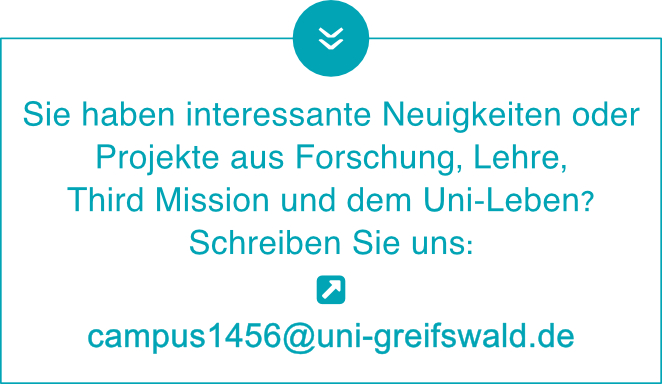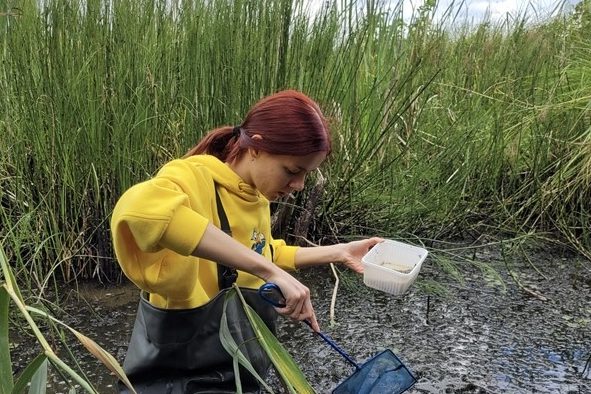
Mariia Leontieva on an exkusion in Poland, © Mariia Leontieva
Mariia Leontieva comes from Ukraine and came to Germany with the help of the scholarship “Zukunft Ukraine“ at the beginning of the war. In this interview, she talks about her arrival, how she settled in, and how she dealt with challenges.
Can you briefly introduce yourself? When and under what circumstances did you come to Germany – and how did you find out about the DAAD’s “Future Ukraine” program?
My name is Mariia Leontieva, and I am originally from Kharkiv, Ukraine. I moved to Germany spontaneously after the beginning of the war in Ukraine because I wanted to continue my education, which was no longer possible at home. I applied for the English-speaking master’s program Biodiversity, Ecology and Evolution (BEE) at the University of Greifswald. Becoming a scientist has always been my dream, so the opportunity to continue studying was incredibly important to me. After becoming a student in Germany, I needed financial support, and through my own online research I found out about the DAAD’s “Future Ukraine” program and applied.
What challenges did you face when you arrived in Germany – for example, in terms of organization, language, or studies? How did you deal with them? How did you overcome these challenges?
In the beginning, I felt a bit lost. Since I moved to Germany so suddenly, my German was very limited, I even struggled with the simplest phrases in a shop. Thankfully, I received a lot of help from the university staff, who patiently explained to me how the online study portal worked and showed me where my different courses took place. I was also very lucky to meet kind and supportive classmates. They helped me with adapting to student life in Germany and guided me through systems and routines that were new to me.
How did you prepare for your studies in Greifswald in terms of subject matter and language? What support services were particularly helpful to you?
The program I joined offered many exciting courses, and I was very happy to study there. At the same time, it was challenging because everything was new: there was a lot of additional work after lectures, and I had to get used to laboratory equipment and methods that many of my classmates were already familiar with. Even though the lectures were in English, following them was difficult for me at first. Without financial support, I would have needed to take on a job, which would have left me with far less time for my studies. Thanks to the DAAD scholarship, I could dedicate myself fully to my courses and even take additional ones, which allowed me to learn much more than I expected.
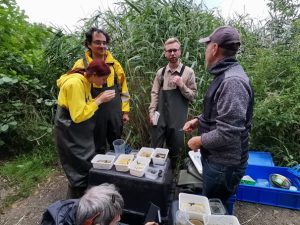
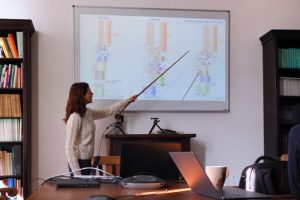
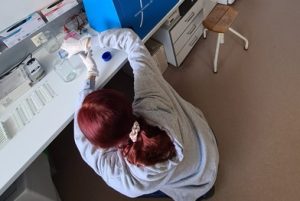
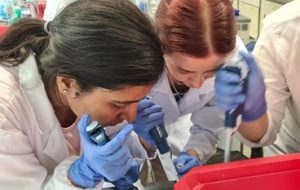
How did you settle in Greifswald – at the university or in everyday life? What services or initiatives helped you?
I met many wonderful people during my studies. My classmates helped me with everyday routines, explained how to use public transport apps, and even accompanied me to appointments with social workers. Every time I faced difficulties, the International Office at the University of Greifswald supported me. Without the kindness and guidance of these people, I would not have come as far as I have.
How did the scholarship affect your academic career? What prospects do you see for yourself today – in Ukraine, in Germany, or even globally?
Thanks to this scholarship, I was able to earn a Master of Science degree in ecology, a subject that fascinates me deeply, at a German university that is highly respected internationally. This achievement opens up opportunities for me to continue working in science, which has always been my life dream. Over the years I have grown very fond of Germany, and now I have a new dream: to stay here and contribute to the German scientific community. I am convinced that this degree, made possible by DAAD’s support, will help me to achieve that.
The DAAD is celebrating its 100th anniversary this year. What does this long history mean to you – especially in such a time of crisis? And what would you wish for the DAAD in the future?
I think the existence of organizations like DAAD is truly invaluable. I cannot fully express how grateful I am for the help I received. After the war in Ukraine began, I feared that my academic career was over. But this program gave me a chance to continue. And my story is only one among many, I can only imagine how many thousands of dreams DAAD has helped to keep alive over the past 100 years. For the future, I wish DAAD continued strength and longevity, so that it can keep supporting people in need, just as it supported me.
Interview: Sophie Müller
25.10.2025

